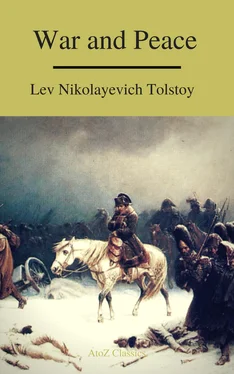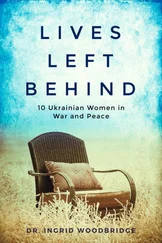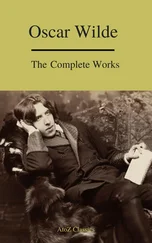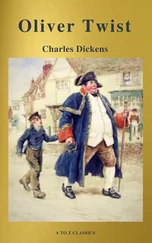The general had so wished to do this and was so sorry he had not managed to do it that it seemed to him as if it had really happened. Perhaps it might really have been so? Could one possibly make out amid all that confusion what did or did not happen?
"By the way, your excellency, I should inform you," he continued- remembering Dolokhov's conversation with Kutuzov and his last interview with the gentleman-ranker—"that Private Dolokhov, who was reduced to the ranks, took a French officer prisoner in my presence and particularly distinguished himself."
"I saw the Pavlograd hussars attack there, your excellency," chimed in Zherkov, looking uneasily around. He had not seen the hussars all that day, but had heard about them from an infantry officer. "They broke up two squares, your excellency."
Several of those present smiled at Zherkov's words, expecting one of his usual jokes, but noticing that what he was saying redounded to the glory of our arms and of the day's work, they assumed a serious expression, though many of them knew that what he was saying was a lie devoid of any foundation. Prince Bagration turned to the old colonel:
"Gentlemen, I thank you all; all arms have behaved heroically: infantry, cavalry, and artillery. How was it that two guns were abandoned in the center?" he inquired, searching with his eyes for someone. (Prince Bagration did not ask about the guns on the left flank; he knew that all the guns there had been abandoned at the very beginning of the action.) "I think I sent you?" he added, turning to the staff officer on duty.
"One was damaged," answered the staff officer, "and the other I can't understand. I was there all the time giving orders and had only just left… . It is true that it was hot there," he added, modestly.
Someone mentioned that Captain Tushin was bivouacking close to the village and had already been sent for.
"Oh, but you were there?" said Prince Bagration, addressing Prince Andrew.
"Of course, we only just missed one another," said the staff officer, with a smile to Bolkonski.
"I had not the pleasure of seeing you," said Prince Andrew, coldly and abruptly.
All were silent. Tushin appeared at the threshold and made his way timidly from behind the backs of the generals. As he stepped past the generals in the crowded hut, feeling embarrassed as he always was by the sight of his superiors, he did not notice the staff of the banner and stumbled over it. Several of those present laughed.
"How was it a gun was abandoned?" asked Bagration, frowning, not so much at the captain as at those who were laughing, among whom Zherkov laughed loudest.
Only now, when he was confronted by the stern authorities, did his guilt and the disgrace of having lost two guns and yet remaining alive present themselves to Tushin in all their horror. He had been so excited that he had not thought about it until that moment. The officers' laughter confused him still more. He stood before Bagration with his lower jaw trembling and was hardly able to mutter: "I don't know… your excellency… I had no men… your excellency."
"You might have taken some from the covering troops."
Tushin did not say that there were no covering troops, though that was perfectly true. He was afraid of getting some other officer into trouble, and silently fixed his eyes on Bagration as a schoolboy who has blundered looks at an examiner.
The silence lasted some time. Prince Bagration, apparently not wishing to be severe, found nothing to say; the others did not venture to intervene. Prince Andrew looked at Tushin from under his brows and his fingers twitched nervously.
"Your excellency!" Prince Andrew broke the silence with his abrupt voice," you were pleased to send me to Captain Tushin's battery. I went there and found two thirds of the men and horses knocked out, two guns smashed, and no supports at all."
Prince Bagration and Tushin looked with equal intentness at Bolkonski, who spoke with suppressed agitation.
"And, if your excellency will allow me to express my opinion," he continued, "we owe today's success chiefly to the action of that battery and the heroic endurance of Captain Tushin and his company," and without awaiting a reply, Prince Andrew rose and left the table.
Prince Bagration looked at Tushin, evidently reluctant to show distrust in Bolkonski's emphatic opinion yet not feeling able fully to credit it, bent his head, and told Tushin that he could go. Prince Andrew went out with him.
"Thank you; you saved me, my dear fellow!" said Tushin.
Prince Andrew gave him a look, but said nothing and went away. He felt sad and depressed. It was all so strange, so unlike what he had hoped.
"Who are they? Why are they here? What do they want? And when will all this end?" thought Rostov, looking at the changing shadows before him. The pain in his arm became more and more intense. Irresistible drowsiness overpowered him, red rings danced before his eyes, and the impression of those voices and faces and a sense of loneliness merged with the physical pain. It was they, these soldiers- wounded and unwounded—it was they who were crushing, weighing down, and twisting the sinews and scorching the flesh of his sprained arm and shoulder. To rid himself of them he closed his eyes.
For a moment he dozed, but in that short interval innumerable things appeared to him in a dream: his mother and her large white hand, Sonya's thin little shoulders, Natasha's eyes and laughter, Denisov with his voice and mustache, and Telyanin and all that affair with Telyanin and Bogdanich. That affair was the same thing as this soldier with the harsh voice, and it was that affair and this soldier that were so agonizingly, incessantly pulling and pressing his arm and always dragging it in one direction. He tried to get away from them, but they would not for an instant let his shoulder move a hair's breadth. It would not ache—it would be well—if only they did not pull it, but it was impossible to get rid of them.
He opened his eyes and looked up. The black canopy of night hung less than a yard above the glow of the charcoal. Flakes of falling snow were fluttering in that light. Tushin had not returned, the doctor had not come. He was alone now, except for a soldier who was sitting naked at the other side of the fire, warming his thin yellow body.
"Nobody wants me!" thought Rostov. "There is no one to help me or pity me. Yet I was once at home, strong, happy, and loved." He sighed and, doing so, groaned involuntarily.
"Eh, is anything hurting you?" asked the soldier, shaking his shirt out over the fire, and not waiting for an answer he gave a grunt and added: "What a lot of men have been crippled today—frightful!"
Rostov did not listen to the soldier. He looked at the snowflakes fluttering above the fire and remembered a Russian winter at his warm, bright home, his fluffy fur coat, his quickly gliding sleigh, his healthy body, and all the affection and care of his family. "And why did I come here?" he wondered.
Next day the French army did not renew their attack, and the remnant of Bagration's detachment was reunited to Kutuzov's army.
Part 3
Prince Vasili was not a man who deliberately thought out his plans. Still less did he think of injuring anyone for his own advantage. He was merely a man of the world who had got on and to whom getting on had become a habit. Schemes and devices for which he never rightly accounted to himself, but which formed the whole interest of his life, were constantly shaping themselves in his mind, arising from the circumstances and persons he met. Of these plans he had not merely one or two in his head but dozens, some only beginning to form themselves, some approaching achievement, and some in course of disintegration. He did not, for instance, say to himself: "This man now has influence, I must gain his confidence and friendship and through him obtain a special grant." Nor did he say to himself: "Pierre is a rich man, I must entice him to marry my daughter and lend me the forty thousand rubles I need." But when he came across a man of position his instinct immediately told him that this man could be useful, and without any premeditation Prince Vasili took the first opportunity to gain his confidence, flatter him, become intimate with him, and finally make his request.
Читать дальше












